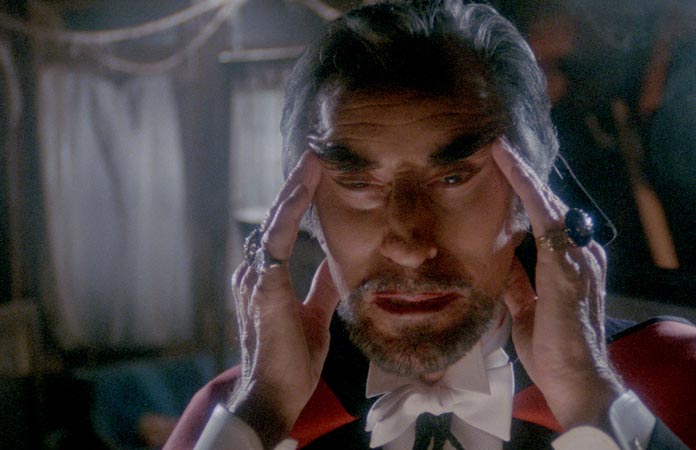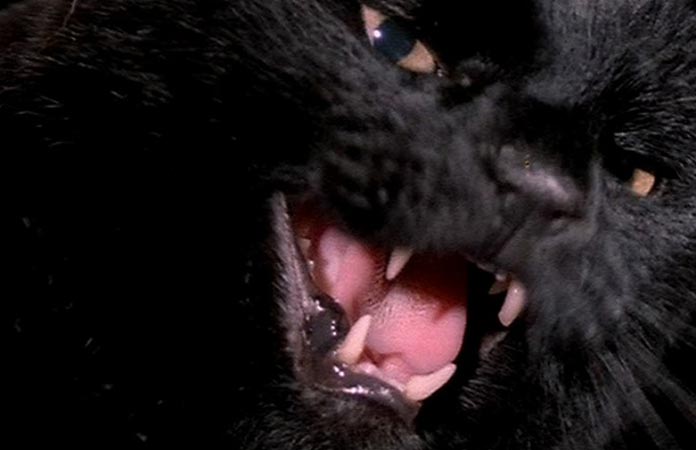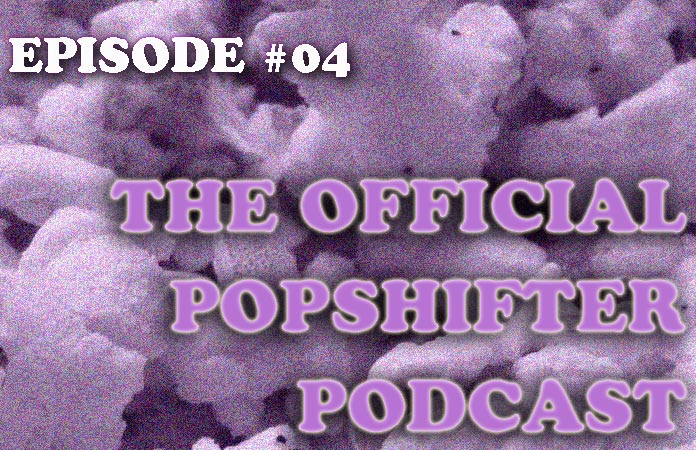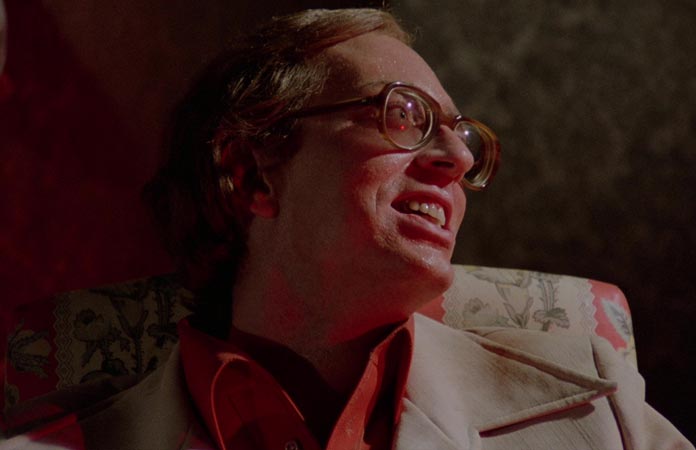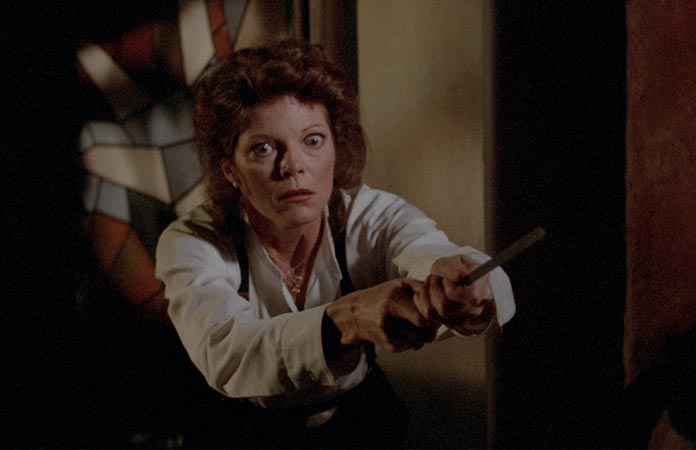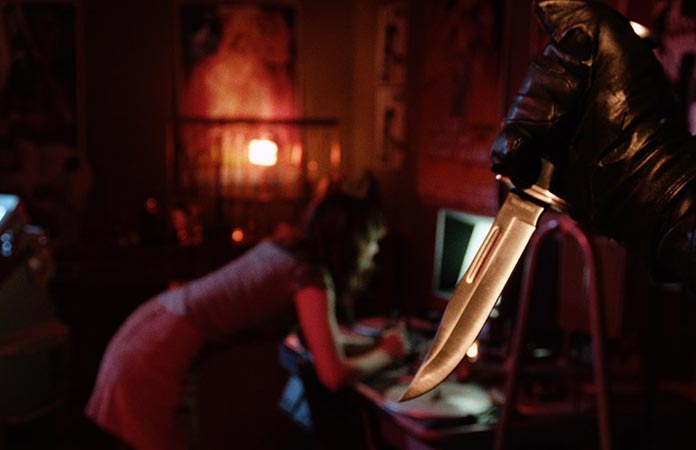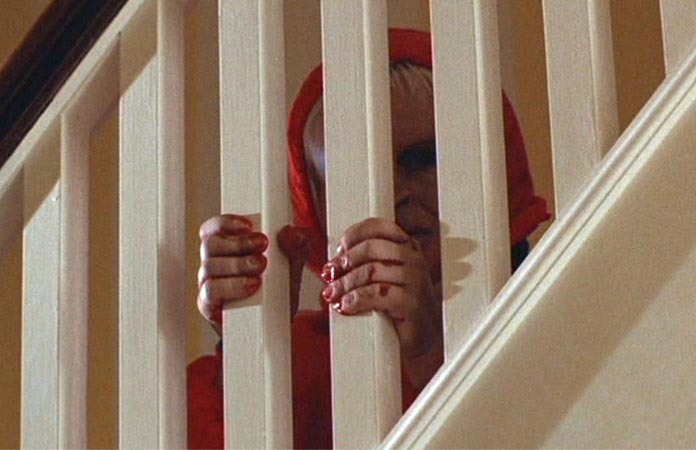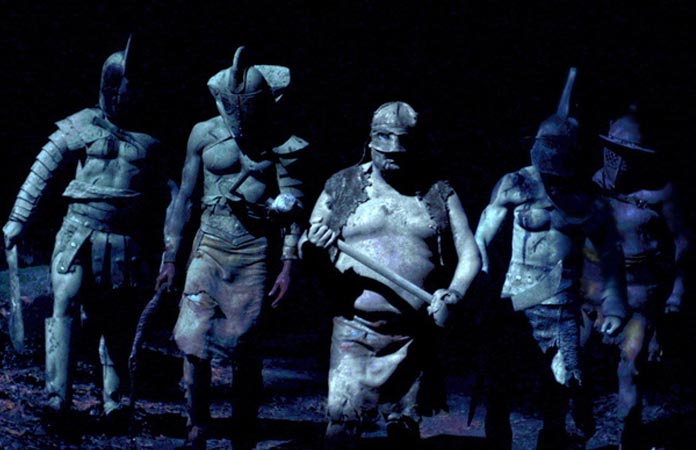Blu-Ray Review: I Am Thor
Published on January 25th, 2016 in: Blu-Ray, Canadian Content, Current Faves, Documentaries, DVD/Blu-Ray Reviews, Metal, Movie Reviews, Movies, Reviews |By Tim Murr
There is no good reason Thor weren’t bigger than KISS. Oh, sure, there were reasons, but not good ones. Starting out in the body building world before moving on to rock and roll, Jon Mikl Thor made a name for himself with feats of strength and great stage presence. His first serious foray into rock as Thor was a glam classic (Keep The Dogs Away, 1977). It should have been huge. It was not.
DVD/Blu-Ray Review: Frightmare (1981)
Published on January 22nd, 2016 in: Blu-Ray, DVD, DVD/Blu-Ray Reviews, Horror, Reissues, Retrovirus, Reviews, Underground/Cult |Think about something you hate, or try to remember something that made so little of an impression on you that recalling details about that thing is difficult or impossible. The shocking truth is that thing is someone else’s favorite thing in the whole wide world. It could be a song, a book, a movie; it doesn’t matter. Somewhere out there, someone’s thinking of that thing you despise with a fondness you will never understand.
Blu-Ray Review: Edgar Allan Poe’s Black Cats
Published on January 7th, 2016 in: Blu-Ray, DVD/Blu-Ray Reviews, Horror, Movie Reviews, Movies, Reissues, Retrovirus, Reviews |“The Black Cat” isn’t usually the first story that comes to mind when people think of Edgar Allan Poe. It tends to get overshadowed by his poem, “The Raven,” or his story, “The Tell-tale Heart,” which actually shares a lot of plot devices with “The Black Cat,” but that’s not important right now. What is important is that Poe’s work is public domain. No one owns it. That makes his work ripe for the gutting by film producers and writers. Slap Poe’s name on it somewhere and you’ve got a built-in audience of horror fans and American Literature majors.
Roger Corman certainly made his nut making quickie Poe flicks, but that’s not important right now, either. What is important is what happened to “The Black Cat” in the hands of two stylistically different Italian directors, horror maestro Lucio Fulci and giallo king Sergio Martino. Their two versions of Poe’s old tale can be found in one beautiful box set from Arrow Video.
Best Of 2015: Jeffery X Martin
Published on January 1st, 2016 in: Blu-Ray, Comedy, Horror, Movies, Music, Pro Wrestling, Reissues, Retrovirus, TV |When you compare and contrast 2015 with other years, it really wasn’t half bad. It was a great year for movies, an absolutely stellar year for music, and television reached new heights of creativity and watchability. Sure, there were some celebrity deaths that shook me to the core (these are still hard times, Dream), but there wasn’t a whole lot to complain about in 2015, except how difficult it was to choose the best things of it.
So let’s start with the movies, shall we? In ascending order, please, Maestro. (more…)
The Official Popshifter Podcast, Episode #04: Texas Gators
Published on November 27th, 2015 in: Blu-Ray, Concert Reviews, DVD, DVD/Blu-Ray Reviews, Movie Reviews, Movies, Music, Music Reviews, Podcasts, Reissues, Retrovirus, Reviews, Teh Sex |Welcome to Episode 4 of The Official Popshifter Podcast. This one is titled “Texas Gators, Violent Pornography, and Tales from the Pit.”
Already, you should be enticed. It’s another fascinating discussion of American pop culture with Less Lee and X! Please enjoy. Preferably with a nice glass of cold Bosco.
Reviews:
DVD Review: The Farmer’s Daughters
Blu-Ray Review: The Beast (from Dirge Magazine)
Blu-Ray Review: Eaten Alive
Published on November 13th, 2015 in: Blu-Ray, DVD/Blu-Ray Reviews, Horror, Movie Reviews, Movies, Reissues, Retrovirus, Reviews |Tobe Hooper’s legendary status as a director began with The Texas Chain Saw Massacre in 1974. This gritty, grisly chunk of cinema has influenced countless films and spawned numerous imitators, including the entire subgenre known as “backwoods horror.” Hooper followed The Texas Chain Saw Massacre with 1976’s Eaten Alive; even those who worshipped at the previous film’s bloody, chicken-bone altar must have felt spiritually annihilated after enduring one of the most grueling film experiences in 1970s horror.
DVD/Blu-Ray Review: Demonoid
Published on November 3rd, 2015 in: Blu-Ray, Current Faves, DVD, DVD/Blu-Ray Reviews, Horror, Movie Reviews, Movies, Reissues, Retrovirus, Reviews |We provide many public services here at Popshifter, and we do our level best to be fair, accurate, and rigorous when testing entertainment products. We also try to anticipate the needs of our readers. For example, one morning during a high-powered meeting at the round table in the glass corner office of Popshifter International Headquarters, the question was posited: “Which movie about a demon-possessed sentient severed hand should we recommend to our readers, whom we love and cherish?”
Blu-Ray Review: The Editor
Published on November 3rd, 2015 in: Blu-Ray, Canadian Content, Comedy, Current Faves, DVD/Blu-Ray Reviews, Horror, Movie Reviews, Movies, Reviews |By Brendan Ross
Those crazy Astron-6 kids have done it again! This time around the Winnipeg collective have made their most ambitious film yet: both a spoof and a love letter to giallo cinema of the 1970s and 1980s. For those not familiar, the term giallo refers to a very specific genre of arthouse-meets-grindhouse thrillers from Italy, recognizable just as much for their beautifully stylized aesthetics as for their bizarrely convoluted story lines and hysterically poor overdubbed dialogue. If you are familiar with the works of Dario Argento, Lucio Fulci, or Mario Bava then you probably know what I’m talking about. If not, go watch Deep Red, The Beyond, and Bay Of Blood right now. I’ll wait here…
Blu-Ray Review: The Brood
Published on October 30th, 2015 in: Blu-Ray, Canadian Content, Current Faves, DVD/Blu-Ray Reviews, Horror, Movie Reviews, Movies, Reissues, Retrovirus, Reviews |Let’s get this out of the way first: whenever someone asks about my favorite David Cronenberg film, my knee-jerk response is, The Brood. Having seen almost all of Cronenberg’s pre-A History Of Violence movies, it still stands out. Perhaps it doesn’t have as much of the gruesome depravity of Videodrome or Dead Ringers (both excellent films in their own right), but there’s just something about it that continues to fascinate me.
Blu-Ray Review, Morituris: Legions Of The Dead
Published on October 15th, 2015 in: Blu-Ray, DVD/Blu-Ray Reviews, Horror, Movie Reviews, Movies, Reviews |TRIGGER WARNING: The following review contains descriptions of sexual abuse, foul language, and general post-film grumpiness.

